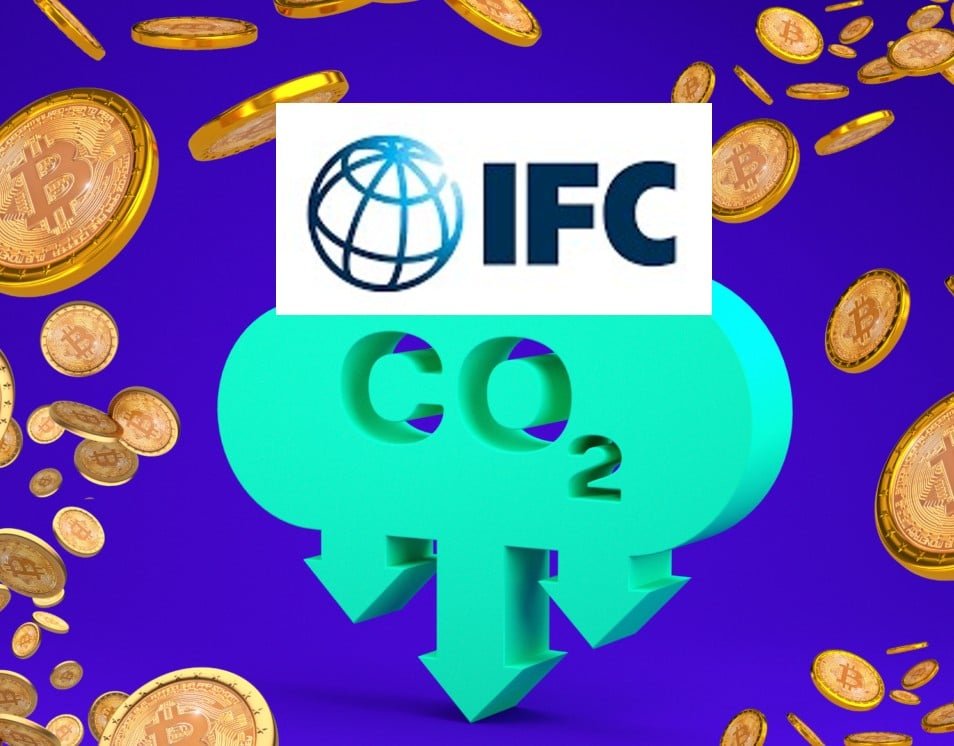World Bank affiliate, International Finance Corp (IFC), announced its support for a blockchain-enabled platform to trade carbon credits.
IFC wants to attract more support from institutional investors for climate-friendly projects in emerging markets.
The finance firm believes that blockchain can help boost the use of carbon offsets to a greater extent than traditional markets.
Blockchain-Backed Carbon Credits
A blockchain is a digital database with information that can be publicly shared within a large decentralized network. It has been recently in the spotlight as tokenized carbon credits are on the rise.
Organizations and companies use carbon credits to offset emissions when accounting for their carbon footprint. They are backed by projects that compensate for emissions. Common ones are tree planting and creating renewable energy sources.
- A number of technology firms have emerged over the last year to make carbon offsets into digital tokens.
In May this year, Ripple announced its $100 million commitment to help ramp up carbon markets using blockchain.
But this market is facing challenges in gaining traction with investors and firms. And that’s mainly due to issues about the origin and environmental benefits of some of the traded credits.
Environmentalists and green groups also criticize blockchain technology as being too energy intensive.
Even the largest carbon credits registry Verra recently announced it will not allow its retired carbon offsets to be tokenized. Verra later opened a public consultation on the tokenization of its credits.
IFC told Reuters that it will only source, tokenize and sell unused carbon credits from a known registry that pass its quality checks.
Last March, the International Emissions Trading Association (IETA) issued guidelines on blockchain use in carbon markets. It aims to establish a functional framework for trading carbon credits.
IFC’s Carbon Opportunities Fund
IFC also launched the Carbon Opportunities Fund to provide the carbon credits on blockchain.
It partners with the following companies in launching the fund:
- sustainability finance company Aspiration,
- blockchain technology firm Chia Network, and
- biodiversity investor Cultivo.
The fund, seeded with $10 million, will buy carbon credits from projects chosen by Aspiration and Cultivo. Blockchain technology from Chia will tokenize those credits which will be tracked by the World Bank’s Climate Warehouse.
The fund has identified 250,000 to 300,000 tonnes of credits to be bought by the end of 2022. It’s looking also conducting due diligence on projects representing 1 million tonnes of credits that will be available in the coming months.
Steve Glickman, president of Aspiration’s international arm noted that:
“It’s going to set a standard and a benchmarking for the market that makes it more likely other institutional capital will come in behind it.”
He further said that only about 10% of carbon credit projects will meet the fund’s criteria.
Carbon credit markets are largely unregulated as governments don’t have standard rules yet on trading credits. But both companies and countries are using offsets as an option to reach net zero emissions targets by 2050. It’s a vital goal to help abate climate change effects.
As per Aspiration’s analysis, only ⅓ of the annual emissions can be reduced by using renewable energy sources and increasing efficiency. It means that a sizable portion of those emissions have to rely on carbon credits to offset.

